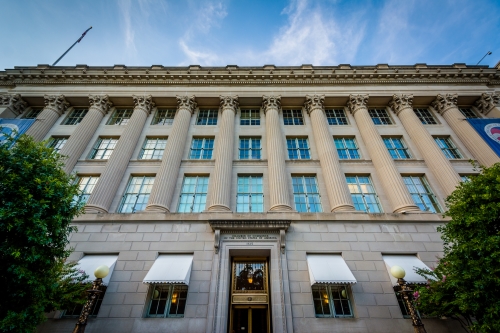“International negotiations on IP, focused on undermining the WTO TRIPS Agreement, are fundamentally misguided.” – Neil L. Bradley
The U.S. Chamber of Commerce yesterday published a letter it sent to members of congress expressing strong support for both the “No Free TRIPS Act” and the “Protecting American Innovation Act.” According to the letter, if enacted, these bills “would prohibit the Administration from negotiating or concluding any modifications to the World Trade Organization (WTO) Trade-Related Aspects of Intellectual Property (TRIPS) agreement, without the explicit authorization of Congress.” The Chamber is concerned about the potential impact of the proposed waiver of patent rights for COVID-19 vaccine technology. The letter comes after the European Union, United States, India and South Africa reached a compromise on language for waiver terms last month.
No Free TRIPS
Senator Marsha Blackburn (R-TN) introduced the No Free TRIPS Act earlier this month. If the bill is signed into law, it would “prohibit the President from negotiating or concluding any withdrawal, suspension waiver, or modification of the Agreement on Trade-Related Aspects of Intellectual Property Rights without explicit authorization from Congress.” If passed, “the President, and any employee, or agent of the United States” would need to first obtain explicit authorization from Congress prior to beginning any negotiations relating to the withdrawal, suspension, or modification of the TRIPS Agreement.
Protecting American Innovation Act
Ways and Means Trade Subcommittee Republican Leader Adrian Smith (R-NE) and Health Subcommittee Republican Leader Vern Buchanan (R-FL) introduced the Protecting American Innovation Act, H.R. 7430, with cosponsors including Representatives Drew Ferguson (R-GA), Jackie Walorski (R-IN), Darin LaHood (R-IL), Brad Wenstrup (R-OH), Ron Estes (R-KS), and Lloyd Smucker (R-PA). According to a press release, the bill would “affirm the authority of Congress over international trade by requiring the U.S. Trade Representative (USTR) to notify and consult with Congress when negotiating any suspension or modification of U.S. trade agreements, including any COVID-related waivers.”
Chamber Letter
In the letter, Chamber of Commerce Executive Vice President, Chief Policy Officer, and Head of Strategic Advocacy, Neil Bradley, said that “international negotiations on IP, focused on undermining the WTO TRIPS Agreement are fundamentally misguided.” Regarding the possible waiver of IP rights related to COVID-19 vaccine technology, Bradley said that “any agreement that undermines IP would limit the ability of innovative companies to develop the cure for the next pandemic or global health threat and bargain away U.S. competitiveness.”
Rather than enter into agreements which in Bradley’s view would undercut innovation, the Chamber recommends that government officials focus energy on the “overwhelming problem” of distributing the vaccine globally. Bradley asserted that IP waiver discussions serve as a distraction and impediment to accomplishing the real goal of getting “more shots in arms.” Further, Bradley insisted that businesses have risen to the occasion and are expected to deliver on their promise of producing enough vaccines for the entire world. Bradley noted that “as of March 2022 over 65% of the global population has received at least one dose” of a COVID-19 vaccine and it is expected that enough doses will be produced this year to vaccinate every person on earth against COVID-19. IP waivers, Bradley warned, would amount to a “dismantling of IP rights” and threaten to upend the licensing agreements that have allowed for the rapid global production of COVID-19 vaccines.
Last month’s compromise text limited the waiver provision to “patented subject matter required for the production and supply of COVID-19 vaccines” only; the previous proposal was much broader. “Patented subject matter” is defined as including “ingredients and processes necessary for the manufacture of the COVID-19 vaccines.” However, the text does contemplate extending the waiver to “the production and distribution of COVID-19 diagnostics and therapeutics” within six months of adoption.
Image Source: Deposit Photos
Author: appalachianview
Image ID: 127425732

![[IPWatchdog Logo]](https://ipwatchdog.com/wp-content/themes/IPWatchdog%20-%202023/assets/images/temp/logo-small@2x.png)



![[Advertisement]](https://ipwatchdog.com/wp-content/uploads/2024/04/Patent-Litigation-Masters-2024-sidebar-700x500-1.jpg)

![[Advertisement]](https://ipwatchdog.com/wp-content/uploads/2021/12/WEBINAR-336-x-280-px.png)
![[Advertisement]](https://ipwatchdog.com/wp-content/uploads/2021/12/2021-Patent-Practice-on-Demand-recorded-Feb-2021-336-x-280.jpg)
![[Advertisement]](https://ipwatchdog.com/wp-content/uploads/2021/12/Ad-4-The-Invent-Patent-System™.png)






Join the Discussion
No comments yet.